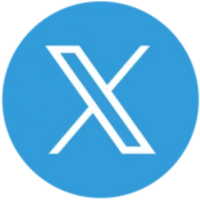
Skill Struck Raises $1.3 Million, Releases First Equity Report
Skill Struck, a Utah EdTech startup in Provo providing accessible computer science coursework for students and teachers in grades K-12, recently released its first equity report. The report comes amid Skill Struck’s rapid expansion after closing a new round of funding in which they raised $1.3 million, with contributions from a series of angel investor groups including Park City Angels.
 As CEO Parker Gentry told TechBuzz in an interview last November, Skill Struck had very early on found a solid market in charter schools. Their more recent expansion efforts have focused instead on gaining traction within public schools, where they could begin to make progress on their equity and access goals. Skill Struck’s product is currently used by public schools in seven states, including Utah, California, Illinois, Texas, and Tennessee. They’ve used the new funding to build out their sales and marketing team to reach a goal of 15 states by autumn 2021.
As CEO Parker Gentry told TechBuzz in an interview last November, Skill Struck had very early on found a solid market in charter schools. Their more recent expansion efforts have focused instead on gaining traction within public schools, where they could begin to make progress on their equity and access goals. Skill Struck’s product is currently used by public schools in seven states, including Utah, California, Illinois, Texas, and Tennessee. They’ve used the new funding to build out their sales and marketing team to reach a goal of 15 states by autumn 2021.
As Skill Struck expands its presence in public and charter schools across the United States and internationally, the annual equity report will form a key metric of the company’s progress toward its goal of improving equity in computer science education.
The report has two components. The first measures diversity of usership, which currently stands at 5,960 students. According to the report, public schools now make up 61% of their user base (ten of which have Title 1 status), nearly 49% of Skill Struck users are female, and over 55% are underrepresented minority students. The product is now available in both English and Spanish, with plans to develop offerings in Southeast Asian languages such as Vietnamese as demand increases.
“Our largest public school partners are currently in California,” said Donnaly Crull, Skill Struck’s Director of Customer Success, “and that’s been lucky because it allows us to test whether our platform and programming can actually deliver the skills we’ve promised.”
One case study conducted at Landmark Middle School in Moreno Valley, California, where minority students make up 93% of enrollment, showed that student participation in the school’s Computer Science, STEAM, and Cybersecurity electives increased by 43% after partnering with Skill Struck, with significant enrollment increases among female, black, and socio-economically disadvantaged students.
The second component of the report measures diversity among Skill Struck’s expanding team. While the team understands that imbalances persist here, (the technical team for example is 80% male and white), the report also shows increasing diversity among Skill Struck leadership, where 50% of its department heads are women. “So we know there’s still work to do,” said Crull, “we as a company need to set the example, to let educators know that the people making the tools are as diverse as the students they teach.”
Tyler Grow, Skill Struck’s Chief Product Officer, highlighted his team’s work to build accessibility and diverse perspectives into the product itself. “We’re always listening and responding to challenges from students, to ensure that the learning games we create are not simply representing a white male version of a character, or puzzle, or whatever it may be. A year ago we weren’t fully accessible, so it’s been huge making that progress toward accessibility, and we’ll never stop finding better ways to represent our students and educators on the platform.”
Grow commented further on the platform’s ability, “not only to teach coding to students, but also to educators, and even to teach educators how to teach coding, with assessment tools that automatically grade student work so that the teacher can focus on facilitating the learning process.” Grow and his team are focused on creating a flexible platform that enables educators to learn according to their own preferred schedule.
 The Skill Struck team is also working to incorporate features suited to diverse geographical needs. Because cities tend to attract larger tech companies, computer science training in more urban schools can focus on preparing students for those jobs. By contrast, rural communities tend to have different needs and often prefer to use such training to improve agriculture tools and infrastructure. “At the end of the day, addressing this dynamic is about being empathetic to the communities we serve,” said Crull. “What is important to them? What are their goals? What do they see as success for them and their communities? So this is an area where it’s been really interesting to see how one platform can have a positive impact these different types of success.”
The Skill Struck team is also working to incorporate features suited to diverse geographical needs. Because cities tend to attract larger tech companies, computer science training in more urban schools can focus on preparing students for those jobs. By contrast, rural communities tend to have different needs and often prefer to use such training to improve agriculture tools and infrastructure. “At the end of the day, addressing this dynamic is about being empathetic to the communities we serve,” said Crull. “What is important to them? What are their goals? What do they see as success for them and their communities? So this is an area where it’s been really interesting to see how one platform can have a positive impact these different types of success.”
The Covid-19 pandemic hit just as Skill Struck was finishing its first sales cycle. “Navigating the pandemic as a startup was definitely scary,” said Crull. But the team has come through stronger as a result, and they are very excited that education conferences are beginning again. “This year is really our first semi-normal sales cycle, and we’ve seen a 90% renewal rate, up from 50% during the pandemic, so that’s very encouraging,” said Crull.
The Skill Struck team, which till now operated from the RevRoad headquarters in Provo, is currently relocating to a new office space in American Fork to accommodate their growing workforce.









